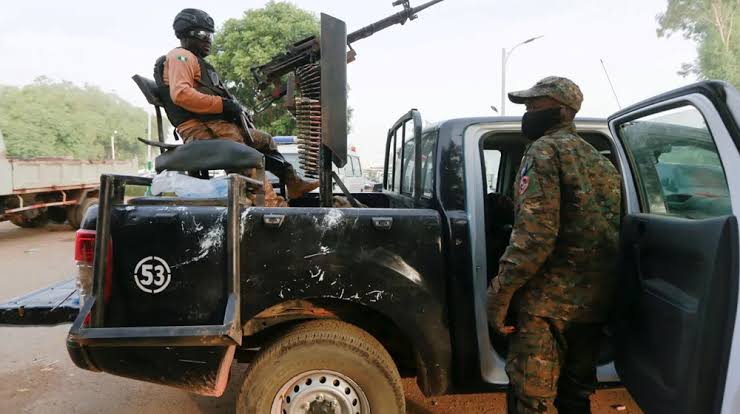
Garba Mohammed
Survivors of a deadly mosque attack in Katsina State said they were attacked in the early hours of Tuesday while observing Subhi (morning) prayers.
Members of the Gidan Mantau community, less than 10 kilometres from Malumfashi town, told Daily Trust that about 23 people were killed in the incident, though the state government confirmed 13 deaths. Several others sustained injuries.
The assault came just a day after Governor Dikko Radda began a three-week medical leave, handing over power to his deputy, Malam Faruk Lawal Jobe.
This latest tragedy follows a similar assault 18 months ago in Yargoje village, Kankara LGA, where gunmen attacked worshippers during Isha (night) prayers.
Eyewitnesses said the incident occurred around 5:00 a.m., shortly after prayers began. They recounted that worshippers heard the sound of gunshots while praying, after which the attackers killed some people and injured others. Community members believe the attack was a reprisal.
Days earlier, locals had ambushed the gunmen, killing several, rescuing abducted victims, and seizing weapons and motorcycles. Residents said the number of those who died had risen to 27, based on reports from hospitals where victims were taken.
Dr. Nasir Muazu, Katsina State Commissioner for Internal Security and Home Affairs, confirmed the attack was retaliatory. He explained that Muslim members of the community were praying during the Fajr prayer when the criminal elements began shooting sporadically.
He added that security operatives had been deployed to the area and commended the resilience of the residents, assuring that the government remained committed to ensuring safety across communities.
In the wake of the killings, Acting Governor Malam Faruk Lawal Jobe called on President Bola Ahmed Tinubu to urgently intervene and provide comprehensive security support. He appealed to the president to issue matching orders to all security agencies to bring a decisive end to the unprovoked attacks, stressing that the people of Katsina State deserved to live in safety.
The killings also sparked protests in Malumfashi town, where angry youths blocked roads, lit bonfires, and disrupted traffic. Police eventually dispersed the protesters using teargas. Many residents accused the government of failing to protect them, lamenting that the essence of government was to secure the lives and property of citizens.
Security experts have linked the attacks to porous borders in the North-West, which allow criminal gangs to cross between Nigeria and neighbouring countries with arms. They urged the federal government to strengthen border management, revive local government administration, and improve infrastructure for quicker security responses in rural areas.
Analysts also criticised peace deals with bandits, describing them as counterproductive and politically motivated.
The Katsina killings add to a growing list of deadly assaults on Muslim worshippers in the North-West. On August 10, gunmen attacked a mosque in Marnona village, Wurno LGA of Sokoto State, killing one worshipper and abducting others.
Earlier, on July 1, suspected Lakurawa group members stormed a mosque in Tangaza LGA of Sokoto State, killing at least 15 people during Zuhr (afternoon) prayers. With attacks persisting despite peace accords, communities remain fearful as security forces struggle to contain rural banditry.
